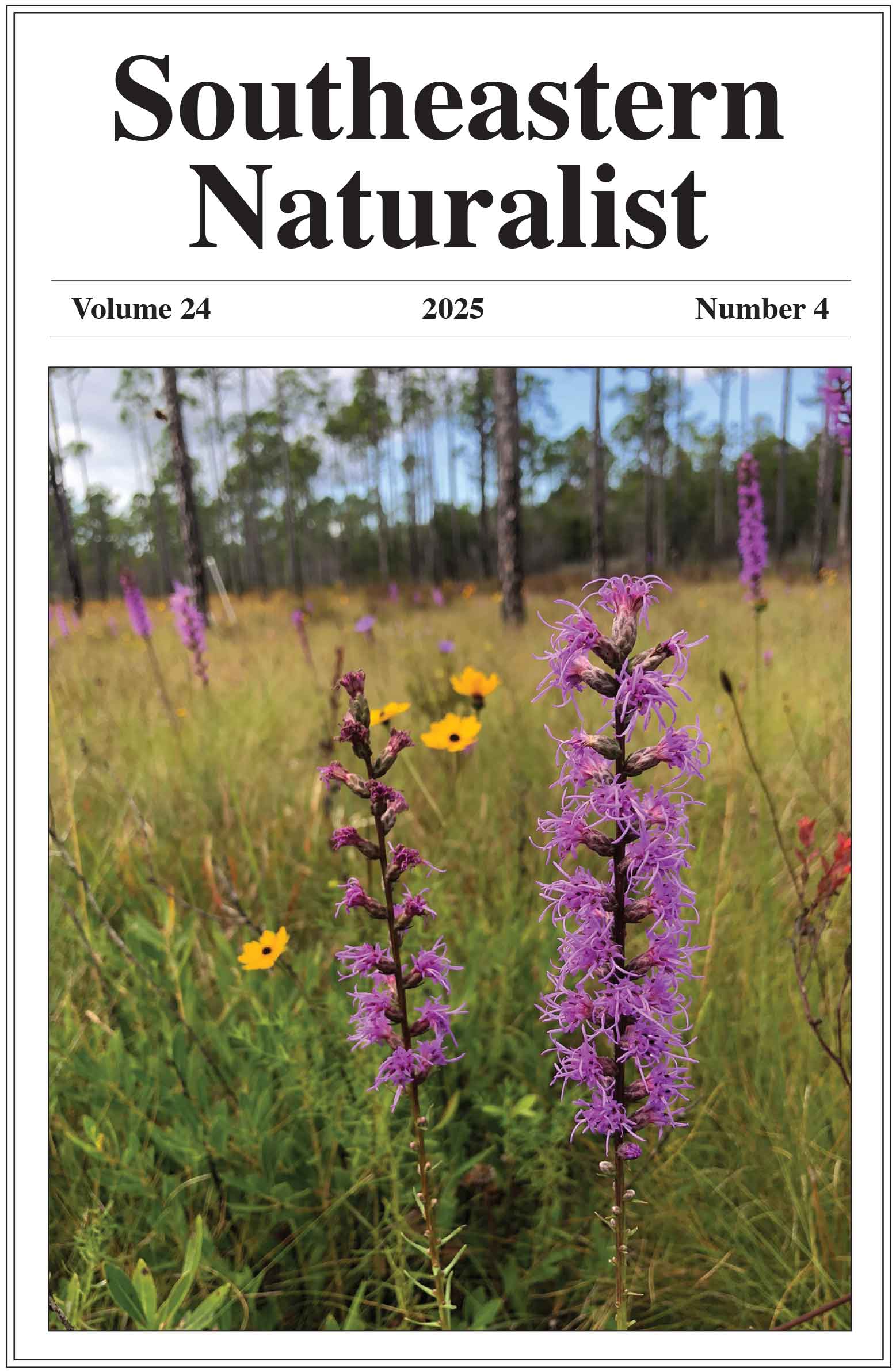Field Surveys for Potential Native Biological Control Agents for the Asian Longhorned Beetle (Coleoptera: Cerambycidae) in South Carolina
Marina Lupu1, Crystal J. Bishop1, Carrie Crook2, Kelly L.F. Oten3, and David R. Coyle1,*
1Clemson University, Department of Forestry and Environmental Conservation, Clemson, SC 29634. 2United States Department of Agriculture, Forest Pest Methods Laboratory, Buzzards Bay, MA 02542. 3North Carolina State University, Department of Forestry and Environmental Resources, Raleigh, NC 27695. *Corresponding author.
Southeastern Naturalist, Volume 23, Issue 4 (2024): 516–528
First published early online: 18 December 2024
Abstract
Anoplophora glabripennis (Asian Longhorned Beetle [ALB]), is an invasive woodboring beetle present in 4 states in the continental US. In May 2020, the southernmost ALB infestation was discovered near Hollywood, SC. Current eradication efforts focus on host removal, but it is often difficult or impossible to get equipment into wet or ecologically sensitive areas. Biological control may be an economically and ecologically advantageous component of a management strategy in the ongoing efforts to eradicate ALB. Thus, we conducted a survey of potential native or naturalized parasitoids and predators by collecting material infested with ALB and removing and inspecting the eggs and larvae. We also deployed sentinel logs to further determine parasitism rates in the field. None of the ALB eggs (n = 77) or larvae (n = 254) extracted from infested material (n = 89) and sentinel logs (n = 165) were parasitized by parasitoids. Generalist predators were observed but caused very low rates of predation (<1%). Overall, our study suggests that natural populations of parasitoids do not appear to be sufficient for managing ALB in South Carolina at this time.
![]() Download Full-text pdf (Accessible only to subscribers. To subscribe click here.)
Download Full-text pdf (Accessible only to subscribers. To subscribe click here.)
Access Journal Content
Open access browsing of table of contents and abstract pages. Full text pdfs available for download for subscribers.
Issue-in-Progress: Vol. 25( 1) ... early view
Check out SENA's latest Monograph and current Special Issue in progress:













 The Southeastern Naturalist is a peer-reviewed journal that covers all aspects of natural history within the southeastern United States. We welcome research articles, summary review papers, and observational notes.
The Southeastern Naturalist is a peer-reviewed journal that covers all aspects of natural history within the southeastern United States. We welcome research articles, summary review papers, and observational notes.